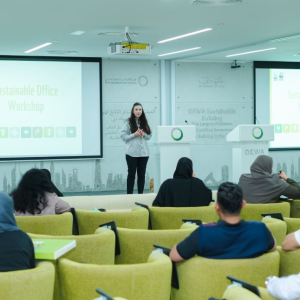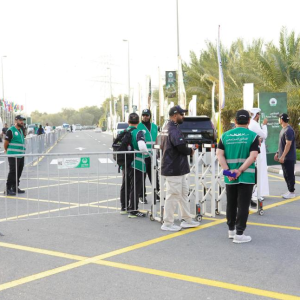The recently launched Ajman NuVentures Centre Free Zone (ANCFZ) has announced an ambitious goal: to reach more than 10,000 registered companies by 2026.
Within its first year, the Free Zone has already exceeded 6,500 firms. This rapid uptake underscores both strong demand and the appeal of this new business‑hub offering in the emirate of Ajman, United Arab Emirates.
Strong early momentum
Since its launch in late 2024, ANCFZ has seen swift uptake from entrepreneurs and investors. The Free Zone’s leadership reports that roughly 45–50 per cent of the companies newly registered are from India.
This level of Indian participation reflects the broader trend of UAE‑India business ties intensifying, and Ajman positioning itself as a friendly entry point for Indian entrepreneurs looking to expand overseas.
What’s driving the growth?
Several factors have combined to make ANCFZ an attractive proposition:

- Fast setup process: The Free Zone promotes a business licence in as little as two hours, and visa processing in 24 hours.
- Digital & streamlined services: From documentation to approvals, the Free Zone offers a largely digital portal and support system that reduces red tape.
- Flexibility and multi‑activity licence: Companies can operate across multiple permitted activities under one licence, making it suitable for modern business models spanning tech, e‑commerce, services and beyond.
- Cost effectiveness: Operating from Ajman offers competitive packages compared to some of the more established zones, making the Free Zone appealing for small to medium enterprises and startups.
- Strategic international outreach: The Free Zone has been actively promoting itself via roadshows in major Indian cities such as New Delhi, Bengaluru and Mumbai.
Why the 10,000‑company target matters

Reaching the 10,000‑company milestone by 2026 would signify more than a numeric goal. It would:
- underscore Ajman’s credentials as a serious business hub and rise of ANCFZ as a flagship zone for entrepreneurship and international investment.
- drive job creation, innovation and economic diversification within the emirate in line with wider national strategies.
- deepen the UAE’s positioning as a global gateway for companies seeking a regional base, especially as free‑zones cater to cross‑border trade, regional headquarters and modern sector activities (AI, blockchain, e‑commerce).
- enhance the Free Zone’s attractiveness to investors by demonstrating momentum, peer‑company density, and ecosystem effects (shared services, networking, supply‑chain linkages).
Indian entrepreneurs: a key target
The statistic that nearly half of the new registrations are Indian‑led speaks volumes. For Indian investors and business owners, ANCFZ offers several lures:

- Familiar time‑zones, cultural ties and strong trade links between India and the UAE.
- Ability to use Ajman as a regional base for export, re‑export, tech services, and more.
- Competitive setup and ease of process through the Free Zone’s digital‑first model.
For Indian SMEs and startups looking to internationalise, the ANCFZ model looks especially well designed.
Challenges and considerations
While the growth story is promising, some caveats remain for businesses considering registration:
- Location awareness: Ajman is smaller and less internationally known than some of the larger UAE free‑zones in Dubai or Abu Dhabi. Businesses may need to assess connectivity, branding and logistic implications.
- Competition: The UAE has more than 45 free‑zones. Distinction, service quality and long‑term viability will matter.
- Sustaining growth: Pushing from 6,500 to over 10,000 companies within the next year means maintaining high pace of onboarding, ensuring services keep up, and long‑term retention of companies (not just registration).
- Activity mix: While the licence is flexible, companies should ensure their chosen business activities align with both Free Zone regulations and their own strategy (for example, whether they need mainland trading access or purely international operations).
What this means for Ajman and the UAE economy
For the emirate of Ajman, success of ANCFZ could contribute strongly to economic diversification, job growth, and growth of startup/entrepreneurial culture. For the UAE as a whole, it supports the narrative of a vibrant free‑zone ecosystem enabling global investment flows and non‑oil economic growth. According to national statistics, free‑zones continue to attract foreign direct investment and contribute significantly to non‑oil GDP.
Looking ahead: key outlooks

- In the short term, watch for ANCFZ’s roadshows and outreach programmes, especially in India and other high-growth markets.
- The Free Zone is likely to expand its service offerings (virtual offices, coworking, specialised licences for emerging sectors such as gaming, blockchain, AI) to stay attractive.
- Success will depend on not only registration numbers, but retention, upgrade of companies, and the evolution of an ecosystem (networking, support services, access to talent).
- For businesses considering setup: assess how ANCFZ’s offerings match your strategic goals such as what markets you are targeting, whether you need mainland access, what activities you plan to operate, and what the cost and timeline will be.
In summary, the Ajman NuVentures Centre Free Zone is charting a bold course: from its recent launch to a target of over 10,000 registered firms by 2026. With strong early momentum, especially among Indian entrepreneurs, and a service proposition built for speed, flexibility and cost‑effectiveness, the Free Zone is positioning itself as a compelling option for global business expansion. While challenges remain, the roadmap looks promising especially for entrepreneurs and SMEs looking to tap into the UAE gateway for growth.
Do follow UAE Stories on Instagram
Read More:- UAE: Asia Cup 2025 Revealed: Exciting Cricket Fever to Hit













